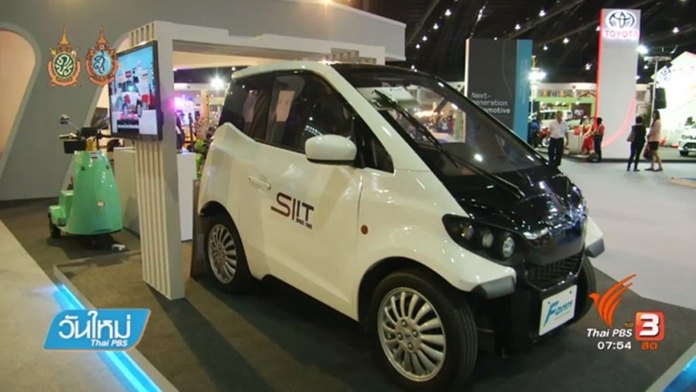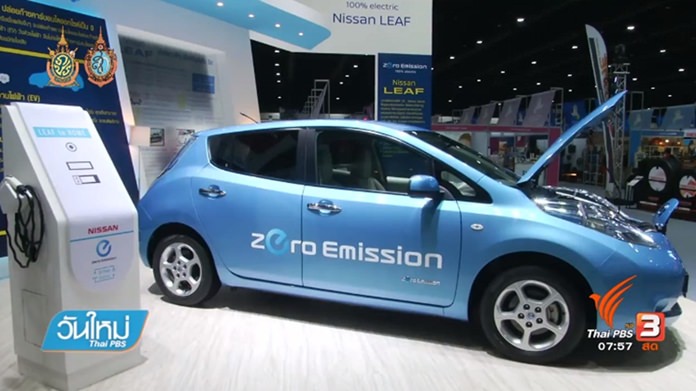Thai people may have a chance to experience the first locally assembled electric vehicle (EV) car when FOMM Corporation said it expected to produce and market the world’s first four-seated EV car at 300,000 baht in the country at end of this year.

FOMM Corporation, a Japanese company involved in development of EV cars, is working closely with the Sirindhorn International Institute of Technology of Thammasat University (SIIT) to conduct research on compact EV cars in Thailand.
At present the Department of Land Transport is amending the law that will allow compact EV car with engine power lower than 15 kilowatts to be registered.
The Department of Industry Promotion’s industrial development director Mr Pitoon Pholpanichrasmee said by either the end of this year or early next year, the first compact EV car will be available and in use in Thailand.

But for battery cloud for EV cars, it still needs to develop for faster charging from the present 6-8 hours to half an hour, he said.
He said Nissan has introduced “Leaf” model, a 100? EV car, in the Thai market but its price has not yet been concluded adding however it is affordable price.
Most car companies are awaiting government’s policy on import tax before importing them to the Thai market for use at affordable prices, he said.
The Bangkok Mass Transit Organization’s pilot project for running 200 EV buses end of this year is also awaiting the meeting of the Energy Policy Supervision Committee next week or mid next month to fix electricity charging rate for vehicles.
According to The Nation, FOMM and SIIT have recently signed MOU to conduct joint research for one year evaluating electric vehicles.
The other is between FOMM and Bangchak to undertake a study on implementation of a “battery cloud” system for FOMM compact vehicles by utilising Bangchak’s service stations.
The main purposes of this collaboration are the development of EV efficiency, driving convenience, basic infrastructure, and a future Thai EV industry.
In addition, Bangchak will participate in a feasibility study on a “battery cloud” system and general maintenance services at its service-station network.
Under FOMM’s “battery cloud” concept, batteries for its EVs can be charged at home or be replaced at service stations.
A fully charged battery can run the EV for up to 100 kilometres. The batteries are designed to allow smartphones monitor the remaining power




